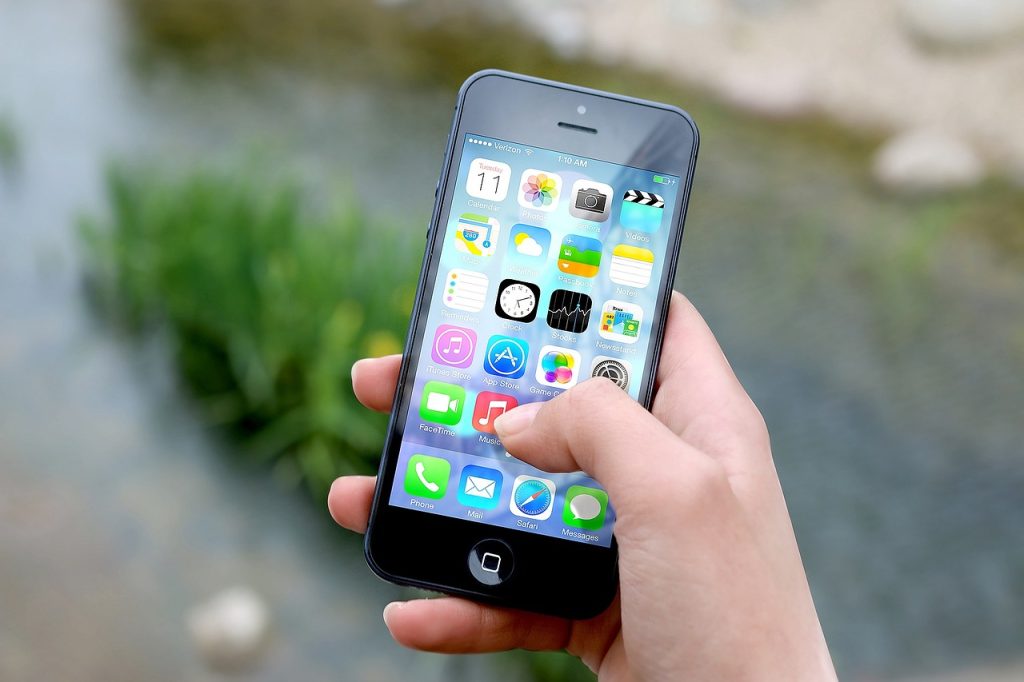As a travel therapist, one of the most critical steps in securing a new job is nailing the phone interview. Since you are switching jobs as frequently as every three months, you need to be able to sell yourself over the phone to land the job. In many cases, this initial phone interview is the only chance to make a good impression. Here are some tips to help you ace your next travel therapy phone interview to get that assignment.
Pick Up The Phone

Yes, this is the number one tip. In the fast-paced world of travel therapy, an assignment may be given to the first therapist who picks up the phone and has a decent interview. If that isn’t you, you could have lost a job without ever getting a chance to interview for it.
Thus, as much as possible, try to pick up your phone. Especially if you see an area code from a place where you applied for a job. If you’re unable to pick up the phone, try to return the call as soon as possible – ideally by the end of the day.
The good news is that if you pick up your phone and get the interview, 90% of interviews end with you being offered the position.
Prepare by Researching the Facility
Even though the majority of phone interviews do end with an offer, you should still treat the interview with importance and prepare for it. Things like the intonation of your voice, body language, and dialog during the interview can affect the outcomes more than your skill set.
When you are expecting an interview, do some basic Google research on the facility and area before submitting. Come prepared for the interview with questions showing that you’ve done some basic research. Showing up prepared with questions shows you are a fast learner and would be a good fit for the job.
Monitor Your Body Language
Despite these interviews being over the phone, body language still matters. As much as possible, sit up tall or stand up while interviewing, it makes your voice more robust. Smile and stay positive. Make sure to speak clearly and confidently. Show enthusiasm for the position and the company.
Also, avoid background noise, distractions, and eating during the interview. This can be distracting to the interviewer.
Make the Interview a Collaboration
Interviews should feel like a collab. You should not be grilling the interviewer and vice versa. They should feel like a natural conversation where you go back and forth. If you don’t know the answer to a question that was asked, don’t sweat it. Say that you don’t know and you’ll be sure to research it after the interview. Managers can usually tell when you are fabricating an answer to a question. It’s better to say you don’t know and you’ll learn it than to make something up or exaggerate your skills.
Also, avoid making demands during the interview. If you start listing a lot of non-negotiables like time off, shift preferences, etc., that can be a red flag that you may not be a great fit for the facility.
Here are some sample questions you may think to ask during the interview:
- Why do they need a traveler?
- Start date/end date
- Schedule and shift
- What happens when there is low census?
- Holiday/weekend requirements
- What EMR do they use?
- Caseload/productivity requirements
- Floating between buildings
- Dress code
- Parking
- Are there other travelers on staff?
Conversely, you don’t want to ask about money over the phone interview. The hiring managers don’t have control over the pay packages. That is a conversation that you can have with your recruiter/agency.
Sell Yourself
Use the interview to sell yourself and all of the skills that you would bring to a job. Focus on highlighting your experience and skills that are relevant to the position you’re applying for. Emphasize your ability to work independently, manage time effectively, and handle challenging situations. Give specific examples of how you’ve used these skills in previous jobs.
Go in confidently and show that you are the #1 traveler for this job.
Check-in With Your Recruiter Afterwards
When the interview is over, let your recruiter know how it went and if they offered you a position over the phone. Communicate your intentions with your recruiter. If you want to take the job, a verbal “yes” over the phone, email, or text, will get the ball rolling to verbally contract you to the job. So, don’t verbally say you want the job unless it’s a definite yes.
Travel moves fast. If you didn’t make a decision during the interview, you will be asked to make one soon. Jobs often like to hear if you are accepting a position within 24 hours. Sometimes there is more flexibility, but things in travel move quickly. Jobs want to interview and hire quickly. If you cannot commit to a position, it may be offered to another traveler. If you want more information about interviewing for travel therapy positions, negotiating pay, finding housing, and much more, make sure to check out the comprehensive travel therapy course, The Guide To Travel Therapy.
Free E-Book & Newsletter
Subscribe to get our latest content and stay up to date by email

Hi there Julia. My name is Danielle. I’m an SLP and traveler currently on Maui. I wanted to know if you’re aware of any travel opportunities outside of the US within those countries that ASHA has reciprocity with, or otherwise eg are we able to take on short term assignments outside of the US. Any feedback/resources would be so appreciated!
Hey I don’t know of any short-term assignments. “SLPs Abraod” group on Facebook has a lot of conversations that revolve around working in other countries.